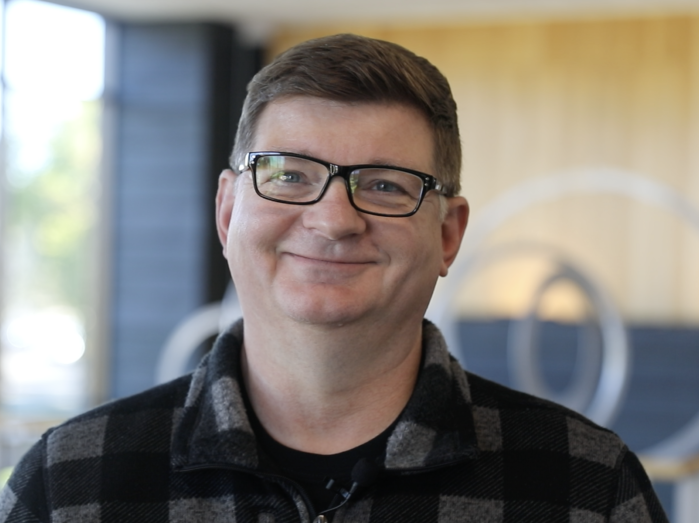
By Kate Wallace
Kelly Halverson’s 26 years of active duty in the Army prepared him for the career he wanted to pursue after he retired from the military, and the work he's been able to accomplish at SCTCC has been exactly what he was looking for.
Two years into college, Halverson was ready to sign up for basic training to pay for his final two years, but the recruiter convinced him to apply for the ROTC scholarship instead. After graduating, he got his commission and was stationed in Germany, then served in Saudi Arabia, Iraq, and Kuwait during Desert Storm. During his time in the Army, he traveled all over Europe, Korea, Japan, and even got to attend a meeting in Scotland, “which was pretty exciting.”
While on active duty, he had the opportunity to earn his Ph.D. in biochemistry and biophysics from the University of Minnesota and a master's degree in Strategic Studies from the U.S. Army War College. With this education, he spent the last few years in the military dedicated to the goal of a future career in academia by teaching biochemistry in two Dept. of Defense graduate education programs - physician assistant and nutrition - and serving as an Assistant Dean for Research. Add his experience in managing large, complex organizations, and Halverson was able to shape his education, army roles, and skills into a resume that set him up for the post-military career he wanted. In 2016, Halverson retired from the Army and applied for a position at SCTCC.
When he started at SCTCC, his first role was as Dean of Health Sciences, then after stepping away for a year, he returned to teach general chemistry for four years. His experience in the classroom and working with students during the covid pandemic to make sure they were able to learn the way they needed to were a boost to not just the department, but to the college.
The opportunity arose recently for the Dean of Liberal Arts and Sciences position, and Halverson applied and interviewed. He started in the dean position Aug. 7.
“It’s very interesting as we look at my experiences in the military and being a veteran and how that’s really helped me as I’ve moved into this career,” said Halverson. “I’ve gotten to interact and work with a variety of people from many different countries and cultures, and that’s been invaluable to me here.”
One of the things he learned worked well for him in the military that translated easily to his role as Dean is what he calls “leading by walking around.” When students and colleagues see him often in the hallway, they start to know who he is, that he wants to connect, and that he’s available as a resource.
Connecting with others is also an important part of his leadership around fellow veterans on campus: “Veterans have so many diverse experiences and we want to be able to share our voices so people can know the range of things that we have done and seen in our careers. Hopefully it will spur some questions as that as we see each other in the hallways or around town, they can ask those questions and hear those voices. There are so many voices with so many stories out there.”
Halverson’s military experience is just one example of how veterans make a difference and mold their skills and opportunities into a lasting career after military retirement. Maybe you see him walking around campus, chatting with others to solve a problem, or perhaps he’s in the Commons joking with students and flashing an easy smile. If you see Halverson out and about, don’t hesitate to stop him to ask a question about his military experience, learn more about chemistry, present a problem, or just say hi. This is exactly what he's been looking for.